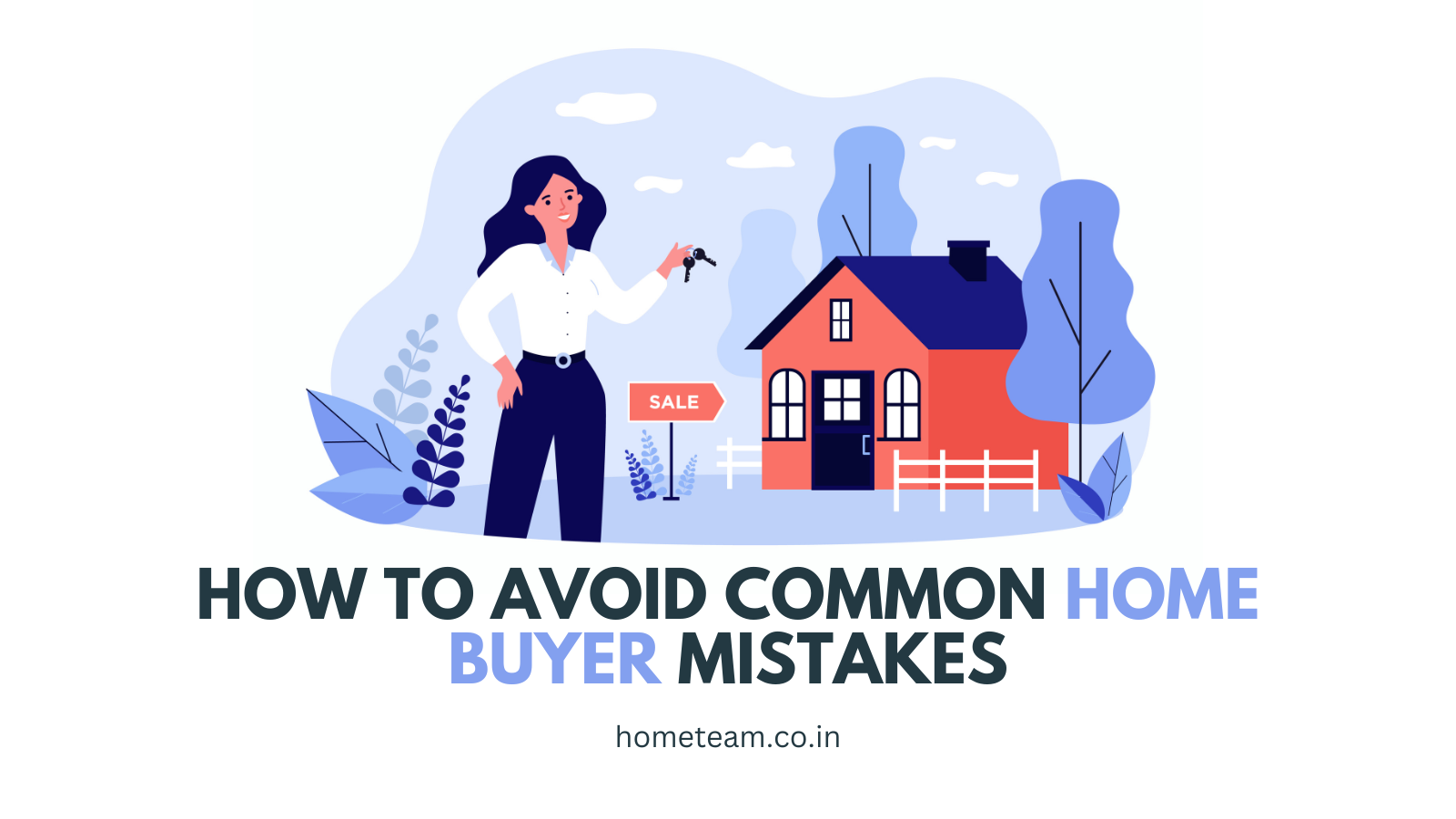How to Avoid Common Home Buyer Mistakes
Buying a home is a major life decision, and it's important to do your homework to avoid making costly mistakes. Here are some of the most common home buyer mistakes, and how to avoid them:
Mistake #1: Not getting pre-approved for a mortgage
Getting pre-approved for a mortgage is one of the most important steps in the home buying process. It shows sellers that you're a serious buyer, and it gives you an idea of how much you can afford to spend.
To get pre-approved, you'll need to provide a lender with your financial information, such as your income, debts, and assets. The lender will then give you a pre-approval letter that states how much money you're eligible to borrow.
Mistake #2: Shopping for a mortgage without comparing rates
Once you're pre-approved, it's important to compare mortgage rates from different lenders. Even a small difference in interest rate can save you thousands of dollars over the life of your loan.
Be sure to compare both the annual percentage rate (APR) and the monthly payment. The APR takes into account the interest rate and other fees, such as origination fees and points.
Mistake #3: Waiving the home inspection
A home inspection is an important step in the home buying process. It gives you a chance to identify any potential problems with the property before you close on the sale.
If you waive the home inspection, you're assuming all of the risk for any problems that are found after the sale. This could include major repairs, such as a new roof or foundation.
Mistake #4: Not negotiating the price
Don't be afraid to negotiate the price of a home. Sellers often expect buyers to negotiate, and they may be willing to come down on the price, especially if the home has been on the market for a while.
When negotiating, be sure to have a good understanding of the market value of the home. You can use a home appraisal tool to get an estimate of the home's value.
Mistake #5: Not having a contingency plan
A contingency plan is a backup plan in case something goes wrong with the home buying process, such as a failed home inspection or a job loss.
A common contingency plan is to have a financing contingency, which means that you're not obligated to buy the home if you're unable to get a mortgage. You may also want to have a home inspection contingency, which means that you can back out of the sale if the home inspection reveals major problems.
Buying a home is a big decision, but it doesn't have to be overwhelming. By avoiding the common mistakes listed above, you can increase your chances of having a positive home buying experience.
Here are some additional tips for avoiding common home buyer mistakes:
Do your research. Learn as much as you can about the home buying process and the local real estate market.
Work with a qualified real estate agent. A good real estate agent can help you find the right home for your needs and budget, and they can guide you through the home buying process.
Don't rush into a decision. Take your time and find the right home for you. Don't feel pressured to make an offer on a home that you're not sure about.
Get everything in writing. Once you've reached an agreement with the seller, be sure to get everything in writing, including the purchase price, closing date, and any contingencies.
By following these tips, you can avoid common home buyer mistakes and make your home buying experience as smooth as possible.
Contact HomeTeam Real Estate Company today to learn more about how we can help you buy a home in Noida.
FAQs
Common home buyer mistakes to avoid include inadequate financial preparation, not researching the neighborhood, neglecting the home inspection, and failing to consider future needs. It's crucial to learn from others' errors to make your home buying experience as smooth as possible.
To avoid financial mistakes, establish a budget, get pre-approved for a mortgage, and consider all related costs (closing costs, property taxes, maintenance). Being financially prepared ensures you don't overextend yourself and can comfortably afford your new home.
Researching the neighborhood is crucial to avoid buyer's remorse. Investigate crime rates, school districts, proximity to amenities, and future development plans. Choosing the right neighborhood ensures your long-term satisfaction with your home.
A home inspection is vital to uncover potential issues. To avoid neglecting it, hire a qualified inspector, attend the inspection, and carefully review the report. Skipping this step can lead to costly surprises down the road.
Avoid this mistake by considering your long-term plans. Think about family expansion, job changes, and lifestyle preferences. Don't just focus on your current needs; plan for the future to ensure your home remains suitable.










